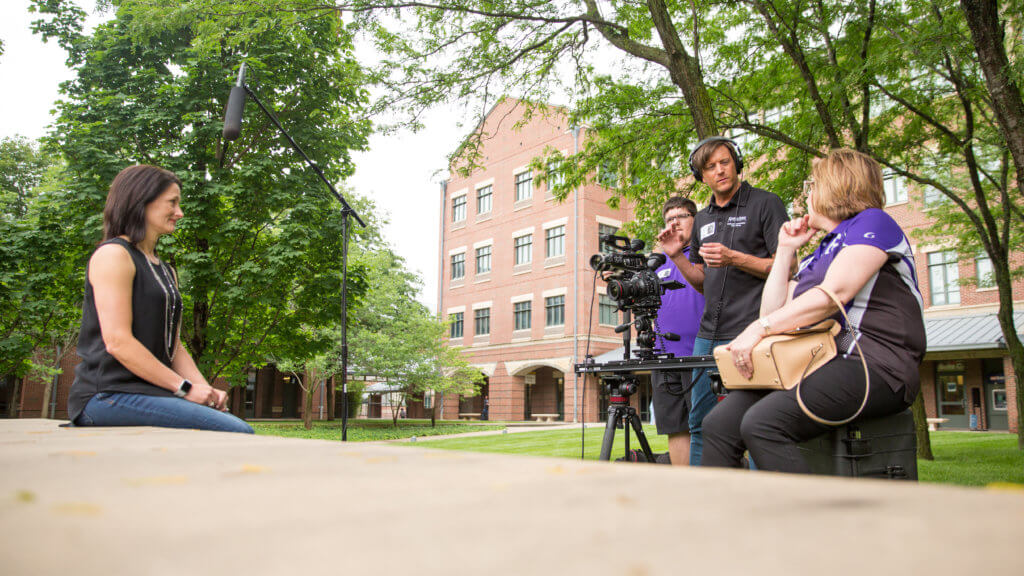
With some 74 zetabytes (or 74 trillion gigabytes) of data being generated this year, Data Analytics is fast becoming a buzzword in today’s job market. By 2026, some 11.5 million jobs will be Data-Analytics related. The demand for Data Scientists and Data Engineers is expected to increase by 39%.
This means jobs in this discipline are high in demand now, with the average salary hovering around US$62,000 — but where to study and which university can provide the best Data Analytics programmes?
Four US university courses are reviewed here, assessed for their programme content, unique offerings and school support.
Kansas State University
If you seek a career in the fast-growing sector of data analytics, head to the College of Business Administration at Kansas State University. It is the first in Kansas to offer a Master of Science in Data Analytics, a graduate-level programme in partnership with six departments across campus: computer science, economics, geography, industrial manufacturing systems engineering, mathematics and statistics.

Source: Kansas State University
Available online and on campus, this master’s degree incorporates data science, analysis skills and business management, and it is structured around two tracks: data science and applied analytics. It spans 30 credit hours.
Students will be taught data science techniques, analytic skills, and business applications by the aforementioned departments, and they will work with faculty members to apply research skills to real business issues. Nine credit hours of electives are available in each program track, and student can choose from courses such as Principles of Artificial Intelligence, Machine Learning and Pattern Recognition, Accounting Analytics, Marketing Analytics, Supply Chain Analytics, GIS and Financial Modelling, among others.
Upskillers pressed for time could opt to pursue the data analytics graduate certificate instead, which can be completed entirely online in 15 credit hours. This option offers coursework in both data science and applied data science.
All enrollees can access the Career Development Centre and Graduate Studies Advisory Council for additional advice and support on their career development.
Upon graduation, students can use their unique knowledge, skills and experience from Kansas State University to offer scientific and systematic methods of decision-making to companies.
University of New Hampshire

Source: University of New Hampshire
The University of New Hampshire offers multiple data analytics graduate programs. These programs are designed for relevant professional pathways in health care, business and biological sciences.
One of the featured graduate programs at UNH is their Master of Science in Business Analytics.
Armed with skills in data analysis and visualisation, predicting/forecasting future probabilities and trends, and helping leaders make decisions in resource-constrained environments, you’ll be ready for a career as a data, business, quantitative, or market analyst.
You can complete this first-of-its-kind programme in New Hampshire in 12 to 16 months (full-time) or 2.5 to 3 years (part-time). Graduates will be able to apply for a 24-month OPT STEM Extension to their 12-month Optional Practical Training Programme (OPT) period. International students can work in the US for up to 36 months after graduation with no additional visa requirement.
“My favourite class was Exploration and Communication of Data with Khole Gwebu,” says Riley Gardner. “Part of my pursuit of a business analytics degree was my interest in data visualization. This class did a good job of teaching the techniques and technology used to work with large structured and unstructured data to create insights through data visualisation.”
“The MSBA programme will be challenging, but at the same time you can expect to learn a lot,” says Tevfik Aktekin, associate professor of Decision Sciences and programme director.
“When you look back, you’ll say ‘I am a different person now in terms of the skills that I acquired than I was before I joined this program.’ The MSBA gives you highly sought-after skills that you can put in a resume and be very competitive in the marketplace.”
Data Science Institute at Columbia University

Source: Columbia University
People gathering around the front lawn at Columbia University. Source: Columbia University, Facebook
With historical strengths in computer science, statistics and industrial engineering and operations research, the Data Science Institute at Columbia University (DSI) was established in 201. Since then, it has grown to include 11 Research Centres and Working Groups, which allow students to work with over 350 affiliated faculty from 18 Schools, and access 27 Industry Affiliates.
The DSI’s focus on critical social issues such as climate, health care and social justice brings together faculty and researchers to develop solutions through data collection and analysis.
Students can apply data science techniques to their field of interest in the Master of Science in Data Science where they can do original research, complete a capstone project, pair up with industry partners and faculty, as well as select an elective track.
The DSI also offers the DSI Seed Funds Programme via two grant amounts of either US$25,000 or US$75,000 that students can apply for collaborative research with government, industry and foundations.
The main aim is that such collaborations can continue in the form of longer-term and stronger relationships among faculty of all disciplines. Student services are also available for those who need help with internship placement, job hunting or industry networking through one-to-one support, career events and other opportunities.
Dakota State University

Source: Dakota State University
Located in South Dakota, the College of Business and Information Systems at Dakota State University offers the Master of Science in Analytics in four track options: Business, General, Healthcare Analytics and Information Systems.
Students will be trained to become full Data Science professionals. Guided by expert faculty, they will be able to know how to apply analytic techniques, interpret analysis results and use analytic tools to solve problems after graduation. They are also required to participate in an assessment activity which is the comprehensive exam, usually in the final semester.
By joining this multidisciplinary field, students can use the latest technology such as SAS and R to change big data sets into insightful information that can translate into action. All students have the flexibility to choose electives from five available tracks: Artificial Intelligence, Business, Healthcare Analytics, Information Systems and General.
Two learning formats are offered: physically present at the Madison campus, and online courses with videos, streaming of classes and interactive websites. Full-time students can expect to complete this master’s degree in four nine-credit hour semesters. Students can apply for internships to enhance their professional networking skills as well.
Some of the Institutions featured in this article are commercial partners of Study International










